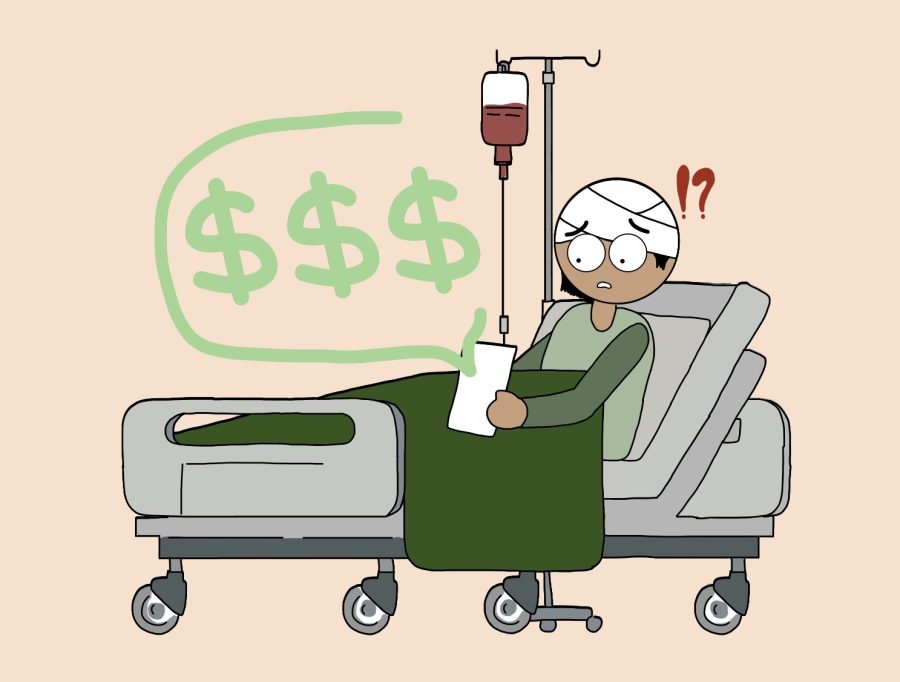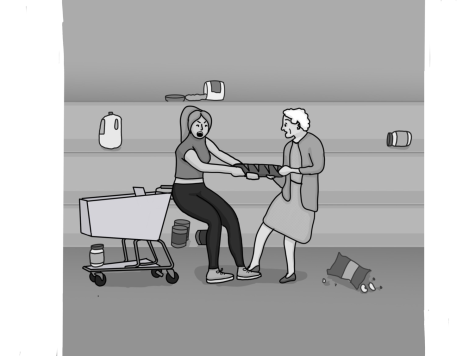FOCUS: Healthcare giants continue to monopolize affecting taxpayers and the economy
On Dec. 11, 2021, Congress passed the Consolidated Appropriations Act, tacking on a rider bill called the No Surprises Act, which was enacted January 1, 2022. This rider prevents hospitals and healthcare services from using surprise out-of-network billings on their patients.
The cost of medical treatment in the United States is high, but the implementation of laws to counter the business practices is concerning to some. Intervention from the federal government has made healthcare a serious topic in the political landscape, being used as a proxy by both the Democratic and Republican parties to push a certain agenda. On social media, many make jokes about the high costs of medical bills.
SCHS sophomore Anika Dontu believes that affordable healthcare may be a problem.
“I really would like it if the prices would lower because more would be accessible to people. But the real question is, how are we going to pay for it then?” Dontu said.
In Europe, many nations have chosen socialized healthcare systems, which have little coverage on European medical bills and surprise business tactics. Eurostat noted Germany’s spending on healthcare was 422.5 billion in 2019, representing 11.7 percent of their gross domestic product. In comparison, Investopedia’s Jim Probasco said, “The United States spent more than $3.8 trillion on healthcare in 2019,” with the Peterson-Kaiser Health System Tracker indicating a spending of 18 percent of the nation’s GDP. This 7 percent difference shows a distinguishable gap between the spending of the United States and the wealthiest European nation.
On February 24, 2022, the Department of Justice announced a lawsuit against UnitedHealthGroup, preventing the acquisition of Change Healthcare by claiming that the merger would hurt the competitive free market.
SCHS special education teacher Gwen Schneider is in favor of the lawsuit.
“It’s good that the United States should be (intervening) because you can’t have monopolies in any kind of business, and healthcare is no exception to that,” Schneider said.
Monopolization is often frowned upon by government entities and the public alike, as it leads to a singular entity controlling an industry. A study by the Peter G. Peterson Foundation found that hospital consolidation was a factor in rising healthcare costs. Kaiser Permanente, Dignity Health, and UnitedHealthGroup are some examples.
SCHS social science teacher Chima Ikeme believes that monopolization may be an issue.
“There’s a point where you’re not only making a profit, but you’re capitalizing on people’s needs. If you had the choice of paying a ton of money to preserve your health, of course you’re gonna pay a ton,” Ikeme said.
In the pharmaceutical industry, the cost of manufacturing a certain drug does not equate to its market value. Julia Hawley of Investopedia wrote that pharmaceutical companies are able to increase their drug prices beyond inflation due to zero regulation.
A study by Doctor Rajkumar of the Mayo Clinic found a vial of Humalog, a type of insulin, used to cost $21 in 1999. In 2019, the cost rose past 1000 percent to $322. In non-US markets, the prices stayed the same.
With politics continuing to shift onto the health industry following COVID, Ikeme believes focus should be shifted towards reforming the policies of healthcare to benefit everyone.
“I think it should be reformed to the point where everyone who needs it could get it adequately without breaking their bank,” Ikeme said.










